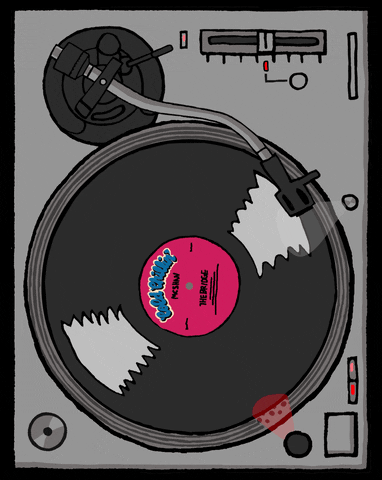Anxiety disorder affects nearly one-fifth of the population—just in the U.S. alone. NAMI.org reports that over 19 percent of Americans suffer from an anxiety disorder, which should be distinguished from regular, run-of-the-mill “adrenaline” nerves that someone might get from public speaking or being stuck in traffic.
For those in the know, it can feel debilitating at times. As with many mental health diagnoses, there’s a range of severity and causes. We’re either “born with it” genetically, or a traumatic event may have occurred that triggers it. No matter why or “how badly” it occurs, it can feel especially isolating to those who endure it—and to those who want to help but don’t know what to say or do. Therapy can help – and when needed, medication. But understanding it, for everyone involved, can be tricky.
Anxiety is not like a cold you can catch and treat with an antibiotic. It’s hard to explain exactly what it feels like to someone who doesn’t experience it. The best way I can describe it is that you’re always sitting in the uncomfortable cesspool of anticipation.
I don’t just mean existential angst like, “Is there an afterlife?” or “Will I die alone?” I mean, like this: “Will my car shut down in a busy intersection? What if I need a root canal again someday? (I will.) Will he call? What if my dog walker forgets to come while I’m temping? What if someone runs a red light? Did I say the right thing at the party? Am I shrill? What’s my blood pressure?” Are you exhausted yet? Imagine big and small questions like this running continuously on a loop through the grey matter of a brain, dipping in and out of the logic in the frontal lobe and then click, click, clicking as it gets snagged on a jagged edge and repeats… again and again and again.

Though well-intentioned, there are solutions people often offer that—at least for me—tend to make the tension worse. Many mental health therapists have weighed in on the phrases best to avoid and have offered more helpful alternatives.
1) On laureltherapy.net, they begin with the old chestnut: “JUST RELAX.”
When every synapse in your brain is on high alert, someone telling you to “just bring it down a notch” only makes it worse. It’s literally the opposite of what your brain chemistry (and not by choice) is doing. It’s similar to “Just calm down,” which for the same reason, can feel dismissive and unhelpful.
They offer instead: “I’M HERE FOR YOU.” It acknowledges your discomfort and gives a soft space to fall.
2) Another sentence to avoid: “YOU’RE TOO SENSITIVE.”
This would be like telling someone with a physical disability that it’s their fault. Instead, they offer: “YOUR FEELINGS MAKE SENSE.”
Sometimes you just want to feel seen/heard—especially by those closest to you. The last thing one needs is to feel bad about already feeling bad.
3) On Everydayhealth.com, Michelle Pugle (as reviewed by Seth Gillihan, PhD) cites Helen Egger, MD, and gives this advice:
Don’t say “YOU’RE OVERTHINKING IT.”
She gives a few options to try instead, but my favorite is: “YOU’RE SAFE.”
It might sound cheesy, but when I’m really spinning, it’s nice to know someone is by my side and not judging my mind for thinking differently than theirs.
4) Pugle also advises against saying “WORRYING WON’T CHANGE ANYTHING.”
I can’t tell you how often this gets said to me and while—perhaps—it’s true, it again implies there’s nothing one can do in a moment of panic. She writes:
“Trying to soothe someone’s anxiety by telling them their thoughts aren’t productive, worthwhile, or that they’re a waste of time also invalidates their feelings and may even leave them feeling more distressed than before,” Egger explains.
Instead, try: “DO YOU WANT TO DO SOMETHING TO TAKE YOUR MIND OF THINGS?”
This gives the impression that someone is actually willing to help and participate, not just critique.
5) “IT’S ALL IN YOUR HEAD.”
The late Carrie Fisher once wrote about how much she hated when people would say that to her—as if that were somehow comforting. To paraphrase, her response was essentially: “I know. it’s my head Get it out of there!”
Laurel Therapy suggests instead to try: “ANXIETY CAN BE REALLY TOUGH.” Personally, I’d prefer: “HOW CAN I HELP?”
While it might at times feel frustrating, the key, when dealing with anxiety, is to be cognizant that you’re not shaming or condescending.
Here are a few more concepts that help me:
GRATITUDE
I saw a movie called About Time a few years ago written by Richard Curtis who has a propensity to get sappy. But this quote is bloody beautiful: “I just try to live every day as if I’ve deliberately come back to this one day, to enjoy it, as if it was the full final day of my extraordinary, ordinary life.” I simply love the idea of pretending like we’ve time traveled to every single moment of our lives on purpose. And this especially helps the anxious-prone because if it’s true that we’re always tooling around in an unpredictable future rather than sitting where time wants us to be, it makes sense that we were there and have come back to a moment to show it respect. To view every day and every thought as a gift instead of a fear. Now that is something.
BREATHE
I’m sure you’ve heard about the benefits of meditation. They are true. I have seen the practice of minding your breath and sitting still make huge differences in those close to me. I have not been able to make meditation a part of my daily routine, but that doesn’t mean I can’t strive to. (Try, try again.) I do partake in Yoga and I find it helps slow my mind down considerably.
KNOW THAT YOU ARE NOT YOUR THOUGHTS
Our amygdales (the part of the brain, which among other roles, elicits our response to threats, real or perceived) can play nasty tricks on us. We are not the sum total of every thought we’ve ever had. On the contrary, I believe that we are what we do, not what we think. Our anxiety (or depression) doesn’t have to define us, especially when we know we’re responding to many threats that don’t even exist. We can be of service to others instead. Volunteer when possible or simply be kind to those around you every day. That is what makes us who we are. Personally, that idea soothes me.







































